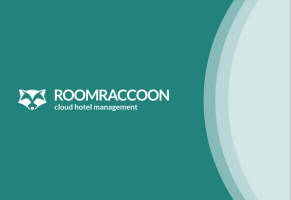CORE PRODUCT
Optimize the Hotel Guest Experience Journey: 5 Key Stages
September 14, 2023 Nicky. M
Home > Guest Experience, Hotels, Industry Trends, Technology > Optimize the Hotel Guest Experience Journey: 5 Key Stages
Share this post

The hotel guest experience is defined in five stages: research, booking, arrival, stay, and post-stay. Each stage is important in creating a positive experience for guests.
Millennials and Gen Z are leading the pack when it comes to jet-setting. And guess what’s their trusty sidekick on this journey? Tech, of course!
To stay competitive, hoteliers need to anticipate and meet the expectations of the new generation of travelers in every interaction.
So, stay tuned as we dish out the latest and greatest tech trends in the hotel biz that are helping hoteliers deliver the ultimate hotel guest experience journey.
Key Questions to Execute a Great Hotel Guest Experience Journey
The hospitality industry is a thrilling and ever-evolving sector that demands constant innovation. By embracing a cloud-based hotel management system, hotels can easily adapt to the latest industry trends and changing guest demands.
To begin, here are the key questions that hoteliers should consider at each stage of the guest journey:
Stage 1: Research
How can we make it easy for guests to find and book our hotel?
Stage 2: Booking
How can we own the guest relationship and reduce third-party commission costs?
Stage 3: Arrival
How can we simplify guest arrival and check-in while boosting additional revenue?
Stage 4: Stay
How can we deliver exceptional service while managing hotel operations effectively?
Stage 5: Post-Stay
How can we stay in touch with guests and encourage them to stay with us again?
How to Optimize the 5 Hotel Guest Experience Stages
Stage 1: Research
The more visible you are, the more likely people are to choose you.
Travel statistics show that 90% of people do all their holiday research online, and 70% of travelers research on their smartphones.
Having an online presence is crucial for reaching your target audience. You can achieve this by creating a user-friendly hotel website, actively engaging on relevant social media platforms, and ensuring visibility on popular booking channels such as Booking.com, Expedia, and Airbnb.
To improve your visibility during the hotel guest journey research stage, keep these tips in mind:
Tip 1: Make sure your hotel is listed on major travel websites
Online travel agencies (OTAs) and metasearch sites are more than just hotel sales channels but serve as powerful marketing tools that increase brand awareness and reach a large audience of local and international travelers during the crucial research stage.
According to TripAdvisor, 80% of all travelers will spend around four weeks researching a destination, taking the time to read reviews, and hunting for unique travel tips to make their trip even better before booking.
Tip 2: Monitor and shape your hotel’s online reputation.
Your hotel’s online reputation is a big deal when it comes to getting people to book rooms. In fact, 72% of travelers won’t book until they’ve read what other travelers have to say about their hotel experience. So make sure you’re taking steps to manage your online reputation and get those positive reviews rolling in.
Explore top tips on how to improve your hotel’s online reputation.
Tip 3: Provide information about your hotel and its amenities
To truly reflect your brand and the exceptional guest experience you provide, your hotel website should showcase stunning imagery and vivid descriptions of your rooms, amenities, and facilities. This will captivate and engage potential guests, leaving them eager to book their stay with you.
If you want your hotel to show up in Google search results without extensive search engine optimization, you need to create a Google My Business profile. It’s free and easy to do, and it will help potential guests find your hotel when they’re searching for places to stay.
You should also create engaging content for your social media channels, and using social proof in your marketing can be really effective in capturing the attention of travelers during the research stage.
For example, Instagram is a great platform for sharing photos and videos of your guest rooms, ancillary services, and testimonials from happy guests.
Free Download: Instagram Post Ideas For Hotels: Engage Your Followers
Stage 2: Booking
Platforms such as Booking.com, Expedia, and Airbnb have made booking accommodation online easy and popular due to the following benefits:
- All-in-one travel packages, including flights, accommodation, and activities
- Membership discounts and loyalty programs
- Quick price and availability comparisons
- Verified customer reviews
- Easy user interface
And hotel technology like a hotel channel manager has made it even easier for hotels to sell on multiple booking channels without worrying about overbookings. OTAs are important for hotel distribution, but direct bookings offer more control without revenue loss.
Those who book a stay directly through the hotel’s website have a higher tendency to revisit. This is because guests get a consistent, personalized experience from the start, instead of the impersonal experience you get from OTAs with their standardized listings.
Rather, guests get a glimpse of your hotel’s brand, ethos, and values. This will help them have a better idea of what to expect during their stay, creating a more memorable experience and making them feel familiar with your property before they even arrive.
Having a booking engine on your hotel website can significantly improve the hotel guest experience during the booking stage. RoomRaccoon’s hotel booking engine offers features that are comparable to OTA capabilities, and it encourages direct bookings, turning your website into a booking powerhouse.
- Bookable rooms and holiday packages
- Direct booking discount code
- Price checker widget for quick price comparisons
- Bookable room add-ons
- Language and currency converter
- Payment processing
- Mobile responsive
- Personalized booking confirmations
Stage 3: Arrival
The arrival stage is one of the most important guest touchpoints. It offers unique opportunities to maximize hotel revenue and sets the mood for the rest of the guest’s stay. Little touches can make a huge difference from the moment they make their booking to their post-stay. Provide a level of service that’s above and beyond their expectations. For instance, to elevate the festive spirit in their rooms, adding a bouquet of holiday flowers adds a personal and thoughtful touch to their stay.
Online check-in has become widely adopted in the hotel industry to simplify and expedite guest arrivals and shift hotel staff’s priorities from administrative tasks to guest experience. According to a study by Statista, most hotel guests (62%) prefer using an app to check in and out online.
Online check-in software allows guests to complete their check-in process before they arrive at the hotel, which saves time and hassle for both the guest and the hotel staff.
The good news is that this functionality is naturally integrated into most high-performing hotel reservation software today and is fully automated, so you never miss a beat.
How can you make more money and make your guests happier at the same time? Easy, by upselling!
Who doesn’t love a little extra when they’re staying at a hotel? Like a bottle of chilled champagne waiting in the room or a spa treatment? Utilizing hotel upsell software can prove highly advantageous in promoting additional services and providing guests with options to customize their stay.
This is particularly crucial in today’s travel industry, where travelers seek personalized experiences tailored to their preferences.
Top 5 things to upsell during guest arrival
The majority of hotels upsell these popular add-ons using the RaccoonUpsell digital guest service menu.
- Room Upgrades: Offer guests a better room for a more comfortable and luxurious stay.
- Food and beverages: Breakfast, dinner, DIY meal kits, and alcoholic beverages.
- Local attractions and activities: Partner with local businesses to offer mutually beneficial experiences.
- Transport: Offer airport pick-up and drop-off for guests for ease and peace of mind.
Stage 4: Stay
If your hotel operations are scattered and disorganized, guests will notice because you will likely drop the ball somewhere. If you already using several different tools to run your property, choose comprehensive hotel management software that centralizes management, replaces other tools, and integrates with your preferred apps. This will result in a more streamlined operation, improved guest experiences, and increased revenue.
Here are our top picks for integrated tools to help you be more efficient:
- POS System – Can you charge it to my room? Staff often get asked this when a property has multiple facilities. Integrating a hotel point-of-sale system to your property management system automatically adds a charge to a guest’s final payment, rather than making your staff manually add in expenses throughout the guest’s stay.
- Housekeeping app – A hotel PMS with integrated housekeeping software and a housekeeping web app can make your team more efficient and help you manage things like room add-ons much better.
- Digital room keys – Digital room keys are a convenient way for guests to access their rooms directly upon arrival. This is done through self-expiring door codes or mobile key apps that guests access during online check-in.
- Guest text messaging – Automated text messaging services like Akia that provide updates during the entire hotel guest experience journey are becoming more popular in the hotel industry. Hotels can send guests texts about events or promotions throughout their stay.
Lastly, in-room technology such as Alexa for Hospitality and service robots adds an element of convenience that improves the guest experience during this stage in ways never seen before. It almost guarantees word-of-mouth advertising through social proof and good reviews.
Stage 5: Post-Stay
It is more profitable to keep loyal customers than to constantly search for new ones. To do this, it is essential to build and maintain strong relationships with your guests. Guests, in turn, feel valued, understood, and appreciated, leading to increased loyalty and profitability for your business.
To improve your customer service, it’s a good idea to ask guests for feedback and make improvements accordingly. You can send post-stay surveys while the experience is still fresh in their mind, rather than waiting too long when they may become distracted with daily life.
Guest feedback can be very informative, revealing areas where you may be overspending on things like fancy towels when guests are actually dissatisfied with the limited breakfast options.
One proven technique to encourage repeat bookings is through guest loyalty programs and special promotions. For example, you can automate a post-stay email that includes a redeemable discount.
Benefits of Mapping the Hotel Guest Journey
There are many benefits to mapping the guest journey, including understanding changing guest expectations, identifying areas for improvement, and developing targeted strategies for enhancing every touchpoint.
Some benefits of mapping the guest journey include
- Improved guest satisfaction: By understanding the journey that guests take, you can identify areas where they may be experiencing difficulty or frustration. Better experiences drive more positive reviews and referrals.
- Increased revenue: A focus on the guest journey gets over 50% greater return on marketing investment and 55% greater cross-sells and upsells.
- Improved operational efficiency: Mapping the guest journey can help you identify bottlenecks and other areas where your operations are not running smoothly. Making changes in these areas can lead to improved efficiency and cost savings.
Checking Out
Technology is becoming more and more involved in the entire journey of a hotel guest’s experience. From the moment they begin their online research for their trip to when they check out of their hotel room, technology enhances and molds the overall experience in a positive way.
RoomRaccoon empowers independent hoteliers through automation, offering an all-in-one hotel management experience without the hassle of complex integrations.
Follow us
Nicky. M
Nicky is RoomRaccoon's Senior Content Manager, combining a love for travel with a practical approach to improving hotel performance through tech and insightful tips. Join her journey where travel, hospitality, and technology meet.
Related Posts
Subscribe to our newsletter for more on the latest hospitality & RoomRaccoon updates delivered straight to your inbox!










